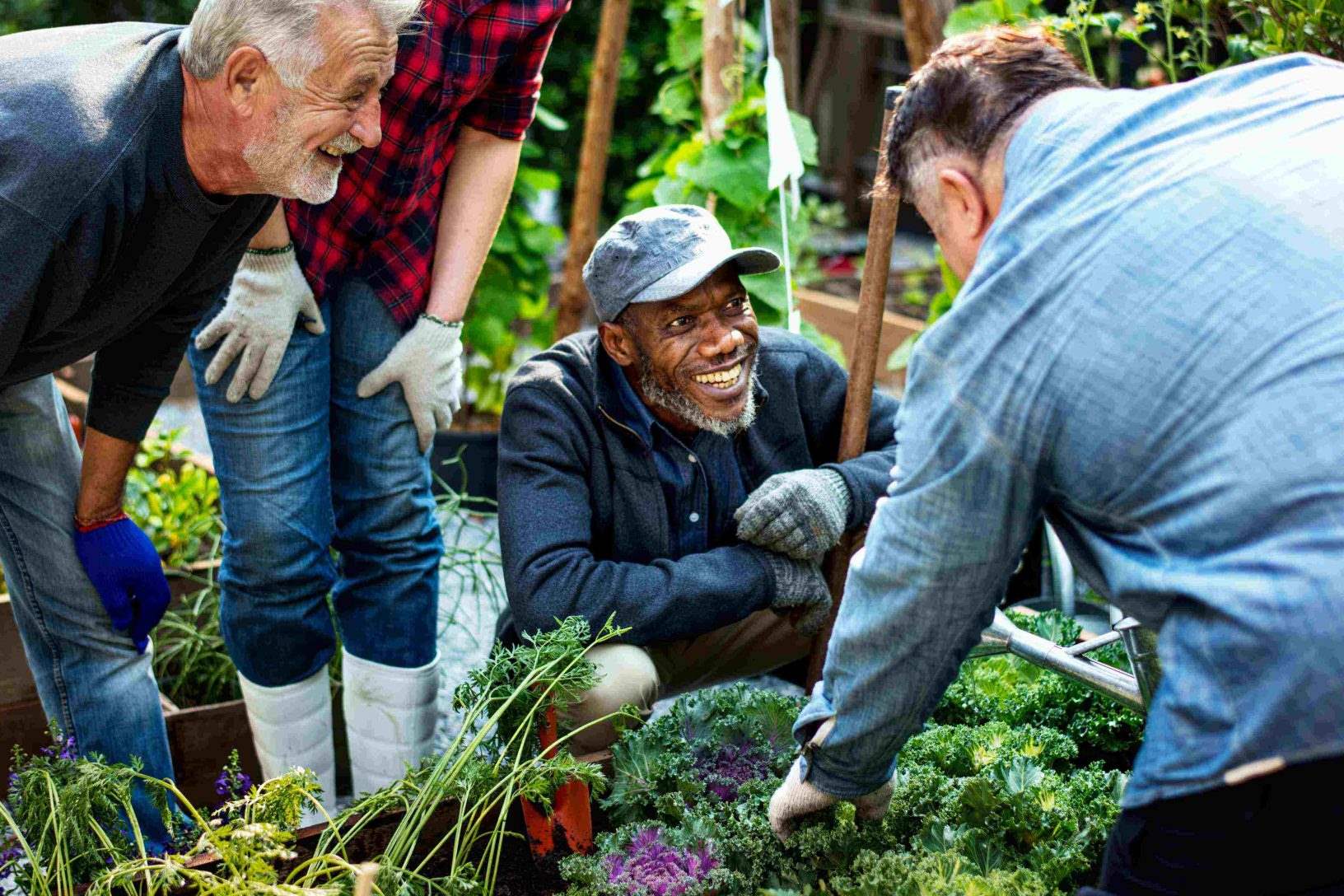
Gardening is a truly rewarding and therapeutic activity that has gained immense popularity in recent years. Whether you have a sprawling backyard or a tiny balcony, there is always room to cultivate your very own green oasis. Not only does gardening allow you to reconnect with nature, but it also provides numerous health benefits, such as reducing stress, improving mental clarity, and boosting overall well-being.
If you are a budding gardener or simply curious about this wonderful hobby, here are 10 fascinating facts about gardening that will surely pique your interest. From surprising scientific discoveries to historical anecdotes, these facts will shed light on the incredible world of plants and the joys of nurturing them. So, grab your trowel, put on your gardening gloves, and let’s delve into the fascinating realm of gardening!
Key Takeaways:
- Gardening is more than just a hobby – it’s a way to stay healthy, help the environment, and save money on groceries while enjoying the beauty of nature.
- Gardening brings families together, promotes sustainable living, and provides a continuous learning experience, making it a rewarding and enriching activity for everyone involved.
Gardening is a popular hobby
Gardening, with its peaceful and rewarding nature, has become a beloved pastime for many people. From growing flowers to cultivating vegetables, individuals find joy and relaxation in tending to their gardens.
Gardening has numerous health benefits
Engaging in gardening activities offers a range of health benefits. It provides exercise, reduces stress levels, improves mood, and enhances overall mental well-being. Gardening is also known to promote hand-eye coordination and increase dexterity.
Gardening helps the environment
By cultivating plants, gardeners play a vital role in supporting the environment. Plants produce oxygen, absorb carbon dioxide, and help mitigate climate change. Additionally, gardens provide habitats for insects, birds, and other wildlife, contributing to biodiversity.
Gardening can save money
Growing your own fruits, vegetables, and herbs in a garden can save you money on groceries. It reduces the need to purchase produce from the store and allows you to enjoy fresh, homegrown food right from your backyard.
Gardening enhances curb appeal
A well-maintained garden can significantly improve the appearance of your home. Lush greenery, vibrant flowers, and neatly trimmed hedges can enhance curb appeal, making your property more visually appealing to visitors and potential buyers.
Gardening is a form of therapy
Gardening is therapeutic and has been used as a form of horticultural therapy for centuries. It provides a calming and nurturing environment that can help individuals reduce anxiety, improve focus, and even aid in dementia care.
Gardening promotes sustainable living
By practicing organic gardening methods, such as composting, using natural pest control methods, and conserving water, gardeners contribute to a more sustainable way of life. It minimizes the use of harmful chemicals and supports a healthier ecosystem.
Gardening can be done in various spaces
Whether you have a sprawling backyard or live in an apartment with limited space, gardening can be adapted to different environments. Container gardening, vertical gardening, and community gardens are just a few examples of how people can cultivate plants even in small spaces.
Gardening promotes family bonding
Gardening is a wonderful activity that brings families together. Working on a garden project allows for quality time and helps strengthen relationships. Children can learn valuable lessons about nature, responsibility, and the importance of sustainable practices.
Gardening is a continuous learning experience
Even experienced gardeners never stop learning. There is always something new to discover about plants, soil health, and gardening techniques. The knowledge gained from gardening can be shared and passed down through generations, creating a sense of community among gardening enthusiasts.
Conclusion
In conclusion, gardening is not only a productive and fulfilling hobby but also has numerous benefits for both individuals and the environment. Whether you have a green thumb or are just starting out, gardening allows you to connect with nature, improve mental health, and promote sustainability. By understanding the basics of gardening and implementing proper techniques, you can create a beautiful and thriving garden that will provide joy and satisfaction for years to come. So get your hands dirty, embrace the therapeutic effects of gardening, and enjoy the bountiful rewards it brings.
FAQs
1. How do I start a garden?
Starting a garden can be as simple as preparing the soil, choosing the right plants, and providing regular care such as watering and fertilizing. Begin by selecting an appropriate location, considering factors like sunlight, soil type, and drainage. Clear the area of weeds and debris, amend the soil if necessary, and then sow or transplant your chosen plants. Regularly maintain the garden by watering, weeding, and providing proper nutrients to encourage healthy growth.
2. How often should I water my garden?
The watering frequency depends on various factors such as plant type, weather conditions, and soil moisture. In general, a deep watering once or twice a week is sufficient for most garden plants. However, it’s important to monitor the soil’s moisture level and adjust accordingly. Watering in the morning or evening when temperatures are cooler can help reduce evaporation and ensure optimal absorption by the plants’ roots.
3. How can I prevent garden pests and diseases?
Preventing pests and diseases in your garden begins with proper planning and regular maintenance. Choose disease-resistant plant varieties, maintain good air circulation, and practice proper spacing between plants to minimize the spread of diseases. Use organic pest control methods like companion planting, handpicking pests, or applying natural remedies like neem oil or soap solution. Regularly inspect your plants for any signs of pests or diseases and take immediate action to prevent further damage.
4. What are the best plants for a beginner gardener?
For beginners, it’s best to start with easy-to-grow plants that don’t require much expertise or maintenance. Some popular choices include herbs like basil, mint, or rosemary, as well as annual flowers such as marigolds or pansies. Succulents and low-maintenance houseplants like pothos or snake plants are also great options for indoor gardening. These plants are forgiving and can withstand occasional neglect or mistakes, making them ideal for beginners.
5. How can I make my garden more environmentally friendly?
To make your garden more environmentally friendly, you can incorporate sustainable practices like composting kitchen scraps to create natural fertilizer, using organic pest control methods, and conserving water by employing techniques like mulching or installing rain barrels. Avoid using chemical pesticides or synthetic fertilizers that can harm beneficial insects, wildlife, and the soil’s ecosystem. Additionally, attracting pollinators like bees and butterflies by planting native flowers can contribute to the overall health and biodiversity of your garden.Remember, gardening is a journey of continuous learning and experimentation. Don’t be afraid to make mistakes and adapt your approach as you gain more experience. Enjoy the process, embrace nature’s beauty, and reap the rewards of a vibrant and flourishing garden.
Was this page helpful?
Our commitment to delivering trustworthy and engaging content is at the heart of what we do. Each fact on our site is contributed by real users like you, bringing a wealth of diverse insights and information. To ensure the highest standards of accuracy and reliability, our dedicated editors meticulously review each submission. This process guarantees that the facts we share are not only fascinating but also credible. Trust in our commitment to quality and authenticity as you explore and learn with us.


